2 November 2017
‘Hooded Men’ internment interrogations would probably be called torture today – High Court judge
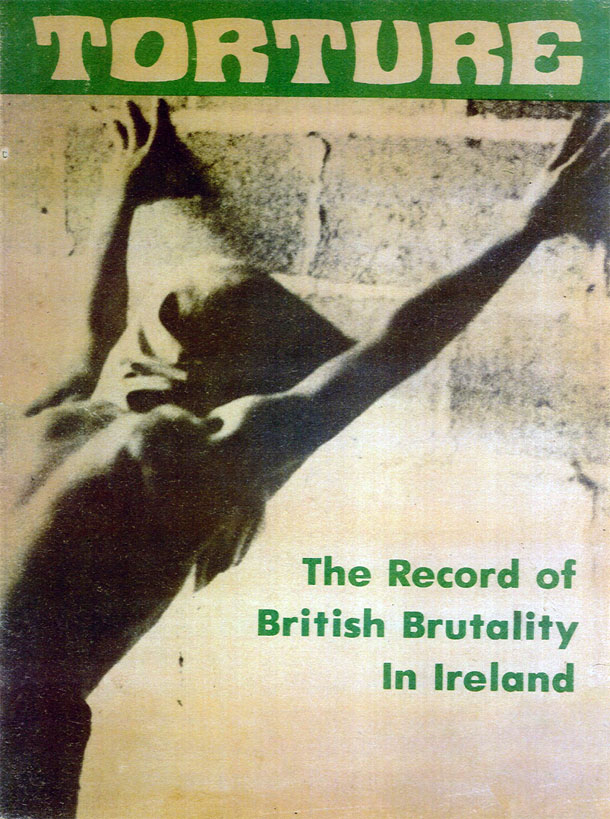
● Cover of exposé on the internment torture machine published by Northern Aid with the Association for Legal Justice
The verdict means the PSNI must now begin a fresh inquiry into the case to identify and potentially prosecute those responsible for any criminal acts
THE TREATMENT of 14 men interned without charge or trial in the North of Ireland in 1971 by RUC and British Army interrogators would probably be viewed as torture today, a Belfast High Court judge has said.
Their solicitor described the pronouncement as a “truly momentous” moment.
‘Operation Demetrius’ was the British military codename for the internment operation that led to nearly 350 nationalists being rounded up by British soldiers and the Royal Ulster Constabulary and imprisoned without trial.
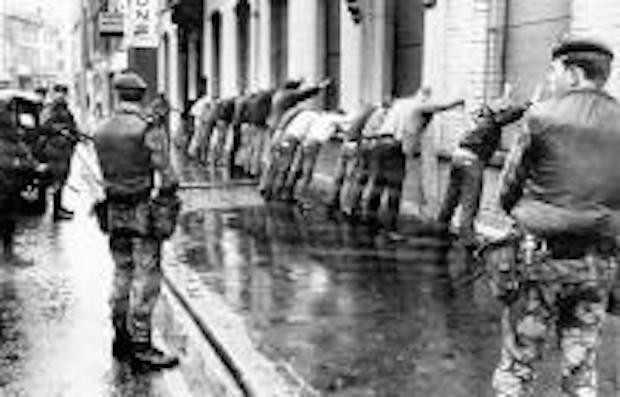
Upwards of 2,000 men, women, boys and girls from the nationalist community were interned between 1971 and 1975, when the discredited strategy was ended.
The men whose case was before the Belfast High Court last week have become known collectively as ‘The Hooded Men’ because of the “deep interrogation” they suffered – beatings, sensory and sleep deprivation with ‘white noise’ while, and the denial of sleep, food and drink.
The European Commission on Human Rights in 1977 ruled that this was torture. The British Government appealed and the following year the European Court of Human Rights ruled that the men had not suffered torture but inhuman and degrading treatment.
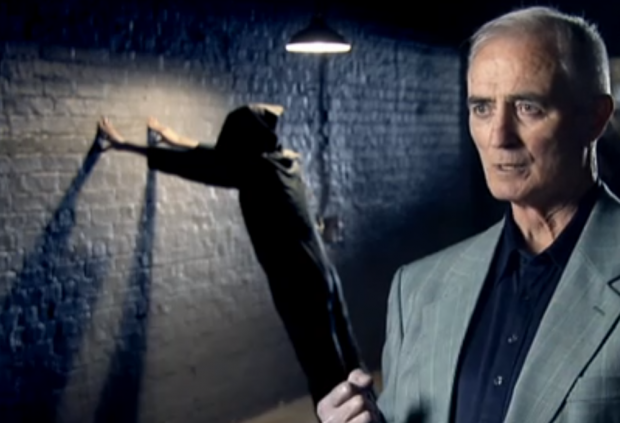
● Gerard Kerr, one of ‘The Hooded Men’ tortured during internment without trial
The ground-breaking acknowledgment in the Belfast High Court last week that this would now probably be viewed as torture led the men’s solicitor, Darragh Mackin, to declare:
“For the first time, the court has directly held that the description of ‘torture’ is an accurate reflection of the treatment” the men were subjected to during was has been labelled deep interrogation after their detention in the ‘internment raids’ in 1971.
“For over 45 years, it has always been our clients’ case that they were the victims of torture. Today’s judgment exonerates their campaign.
“We look forward to the next step, and for the first time an investigation into the tortuous treatment to which they were subject.”
Justice Maguire ruled that a decision taken by the PSNI in 2014 not to pursue an investigation into the men’s treatment in a secret interrogation centre was wrong.
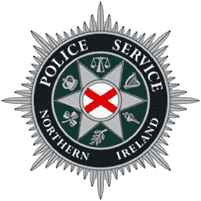 The
verdict means the PSNI must now begin a fresh inquiry into the case
to identify and potentially prosecute those responsible for any
criminal acts.
The
verdict means the PSNI must now begin a fresh inquiry into the case
to identify and potentially prosecute those responsible for any
criminal acts.
During deep interrogation the men were subjected to the ‘Five Techniques’ where they were hooded; deprived of sleep, food and water; and forced to stand in stress positions for long periods while a high-pitched ‘white noise was blared in their eardrums.
The men were flown by military helicopters to a secret interrogation centre (later discovered to be in Ballykelly, County Derry.)
While the helicopter was still in the air, handcuffed and blindfolded captives were verbally abused, threatened and thrown out of the door. In the midst of a searing conflict, they feared for their safety. It was only after they hit the ground that they realised the helicopters were hovering a few feet in the air.
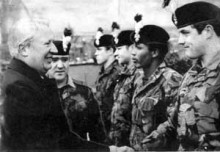 The
men’s legal team maintains that British Prime Minister Edward
Heath (pictured right meeting British troops in Ireland), Stormont Ulster Unionist Party Premier Brian Faulkner and British Minister of Defence
Lord Carrington were involved in the decision-making process and were
fully aware of what was going on.
The
men’s legal team maintains that British Prime Minister Edward
Heath (pictured right meeting British troops in Ireland), Stormont Ulster Unionist Party Premier Brian Faulkner and British Minister of Defence
Lord Carrington were involved in the decision-making process and were
fully aware of what was going on.
In respect of another element of the case, the judge rejected defence arguments that the state was in breach of a legal obligation to carry out a full independent inquiry as the events occurred before human rights legislation came into force.
Follow us on Facebook
An Phoblacht on Twitter
Uncomfortable Conversations

An initiative for dialogue
for reconciliation
— — — — — — —
Contributions from key figures in the churches, academia and wider civic society as well as senior republican figures




